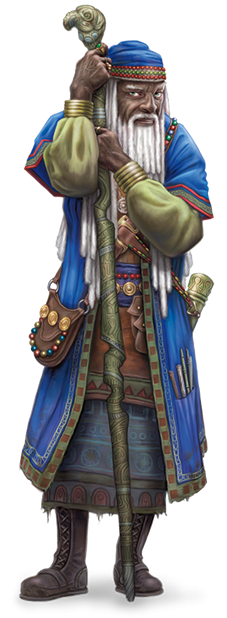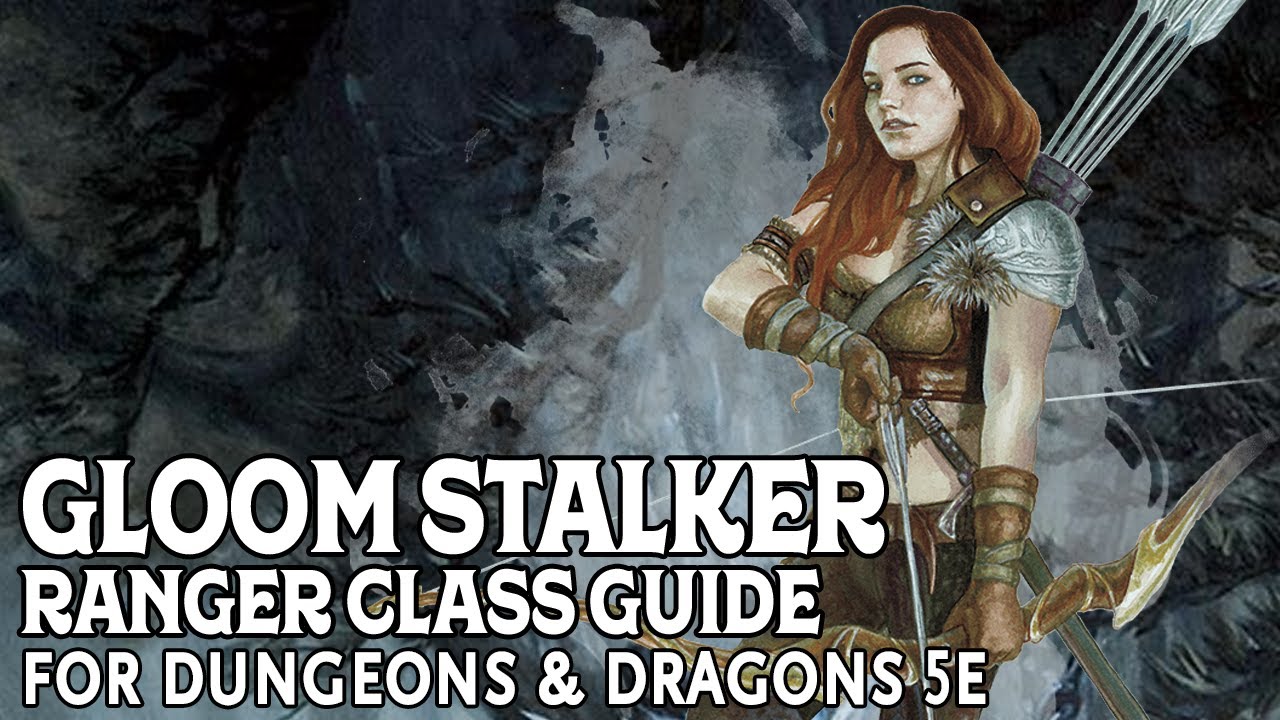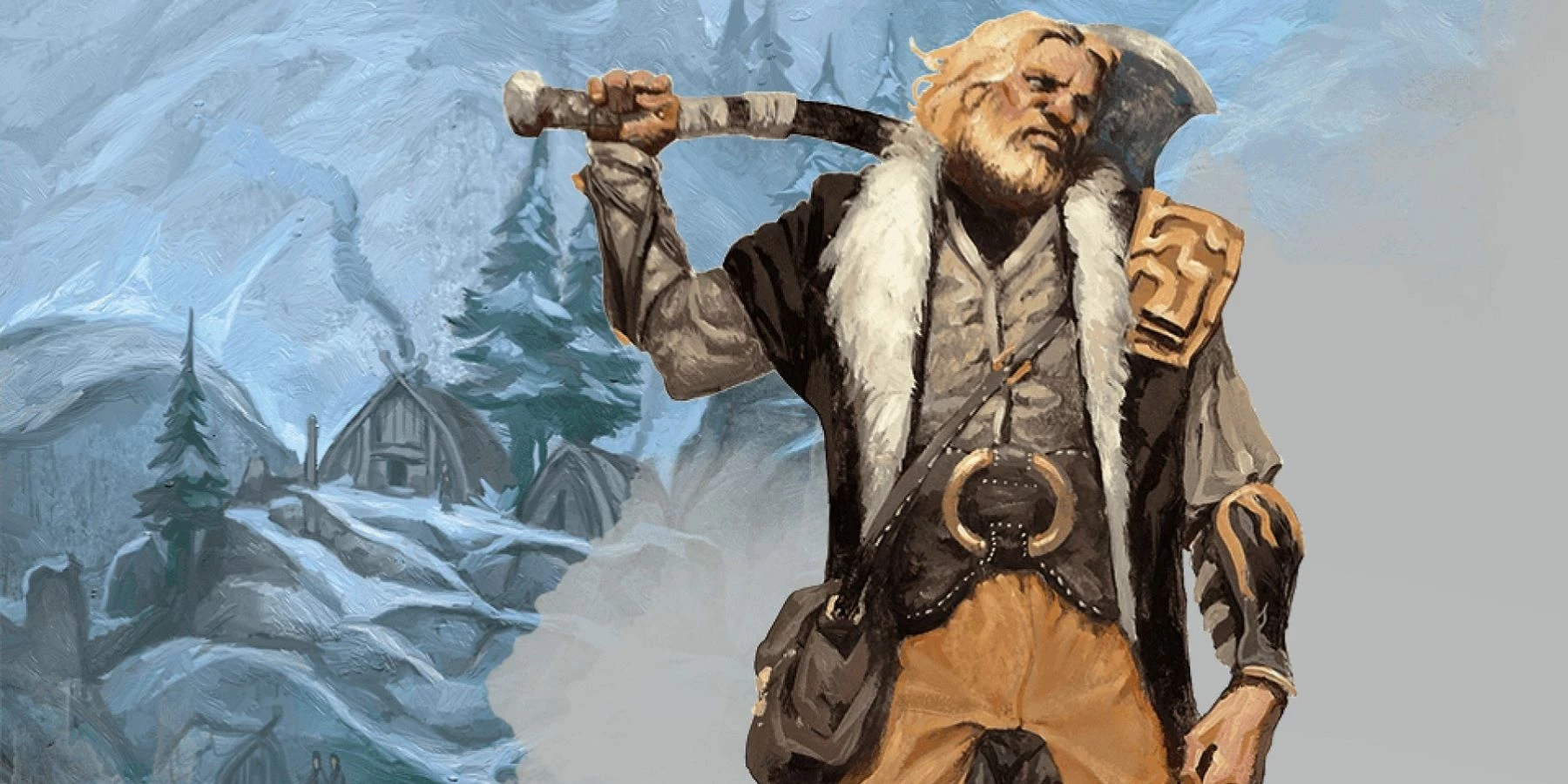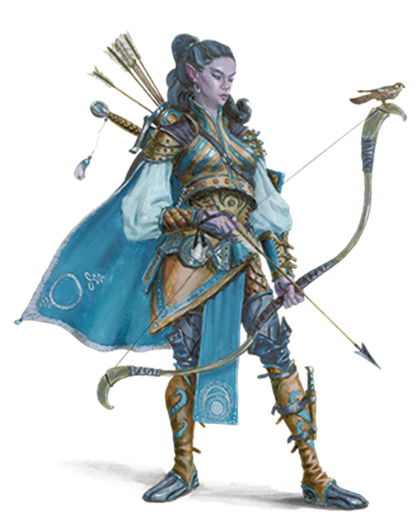Wizard Class Information:
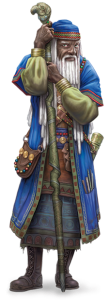
Wizard is the most powerful users of magic, and their spells serve to define and unite them. The Wizard knows all kinds of magic and how to wield them effectively. At max level, wizards are among the game’s most powerful classes.
Clad in the silver robes denoting her rank, an elf closes her eyes to block out the battlefield’s distractions and begins her chant. She performs magic and sends a little drop of flame into opponent ranks, which bursts into a firestorm.
A person writes an exquisite magic circle in chalk on bare stone, then sprinkles powdered iron over every line and elegant curve. After completing the ring, he chants a lengthy incantation. A chasm opens in space within the process, carrying a scent of sulphur from another dimension.
A gnome dumps a handful of little bones etched with mystic symbols at an intersection in a dungeon while murmuring a few words of magic over them. He turns his head to perceive the visions better, then gradually nods, opens his eyes, and gestures down the passageway to his left.
Wizards are the most influential users of magic, and the spells they execute define and unite them as a class. Wizards perform attacks of exploding fire, arcing lightning, cunning trickery, and forceful mind control, drawing on the intricate web of magic that permeates the cosmos. Their sorcery generates monsters from other dimensions, reveals the future, and transforms defeated opponents into zombies. Their most potent spells can transform one substance into another, summon meteors from the sky, or open portals to other dimensions.
Scholars of the Unknown:
Students who want to master its enigmas are drawn to the untamed and cryptic, multifaceted nature of magic’s power. Some seek to become as powerful as the gods and shape existence itself. Even while casting a basic spell needs only the utterance of a few unfamiliar words, a few brief gestures, and occasionally a pinch or clump of exotic materials, these external components scarcely hint at the expertise acquired over years of apprenticeship and endless hours of study.
Wizards depend on their spells for life and death. Everything else is of secondary importance. They acquire new episodes through experimenting and gaining experience. They can also learn them through other wizards, ancient tomes or inscriptions, and ancient animals soaked in magic (such as faeries).
The Appeal of Knowledge:
Wizards’ lives are seldom mundane. Working as a sage or professor in a library or university, teaching others the mysteries of the multiverse, is probably the closest a wizard will ever get to living everyday life. Other wizards provide divination services, serve in the military, or lead lives of crime or dominance.
Even the most cautious wizards are enticed out of their libraries and laboratories and into crumbling ruins and forgotten cities by the allure of knowledge and power. Most wizards think that their counterparts in ancient civilizations had magical secrets that have been lost to time and that finding these secrets c
Developing a Wizard:
A wizard’s backstory must be dominated by at least one spectacular occurrence. How did your character’s first encounter with magic occur? How did you notice you have a talent for it? Do you have a natural gift, or did you study diligently and perform continuously? Is there a magical being or an old book you came upon that helped you learn the ropes of magic?
What prompted you to abandon your academic career? Did your first encounter with magical knowledge whet your need for more? Have you heard of a secret knowledge repository that no other magician has yet to plunder? Possibly, you are eager to test your newly acquired magical abilities in the face of peril.
QUICK BUILD:
By adhering to these guidelines, you may easily create a wizard. First, your highest aptitude score should be Intelligence, followed by Constitution or Dexterity. If you intend to join the School of Enchantment, your second-best score should be in Charisma. Choose the sage background second. Choose the mage hand, light, and ray of frost as well as the following 1st-level spells for your spell-book: burning hands, enchant person, feather fall, mage armor, magic missile, and sleep. It reveals the road to a power greater than any magic attainable in the present day.
Class Attributes:
You acquire the following class benefits as a wizard.
Hit Points
Hit Dice
1d6 for each wizard level
Hit Points at 1st Level
6 + your Constitution modifier
Hit Points at Higher Levels
1d6 (or 4) plus your Constitution modifier per wizard rank gained after the first.
Proficiencies:
Defenses: None
Daggers, darts, slings, quarterstaffs, and light crossbows are permitted.
Tools: None
Saving Throws: Intelligence, Wisdom
Choose two from the following categories: Arcana, History, Insight, Investigation, Medicine, and Religion.
Equipment:
You begin with the following gear, in addition to what your background provides:
(a) A quarterstaff or (b) A dagger
(a) A pouch for components or (b) An arcane focus
(a) Pack for a scholar or (b) A group for an explorer
(a) A spellbook
Spellcasting:
As a student of arcane magic, you have access to a spell book containing spells that hint at your real might. Refer to Spells Rules for the general rules governing the casting of spells and Spells Listing for the wizard spell list.
Cantrips:
You know three cantrips from the list of wizard spells at 1st level. You learn more wizard cantrips as you level, as represented in the Wizard table’s Cantrips Known column.
Spellbook:
You gain a spell book containing six wizard spells of your choice at 1st level. Your spell book contains all the wizard spells you know, except cantrips, which are ingrained in your brain.
Spell Preparation and Casting:
The Wizard table displays the number of spell slots available to cast 1st-level and higher wizard spells. To perform these spells, you must use a spell slot of the same or higher level as the spell. Upon completing a lengthy rest, you will restore all spent spell slots.
You prepare the list of available wizard spells for you to cast. Choose wizard spells equal to your Intelligence modifier plus your wizard level (minimum of one spell). The spells must have a group that corresponds to your available spell slots.
For example, if you’re a 3rd-level wizard, you have four 1st-level spell slots and two 2nd-level spell slots. If you prepare, you can cast the 1st-level spell magic missile using either a 1st-level or 2nd-level slot. Intelligence 16 adds six 1st or 2nd-level spells to your prepared spells.
You can modify your list of prepared spells after a lengthy rest. Preparing a new list of wizard spells requires studying your spell book and learning the incantations and gestures needed to cast the spell: at least 1 minute per spell level for each episode on the list.
Spellcasting Ability:
Intelligence is your ability to cast wizard spells since you learn your spells by studying and memorizing them. You employ your Intelligence anytime a bit mentions your spellcasting capability. In addition, you use your Intelligence modifier when determining the DC for saving throws and attack rolls with wizard spells you cast.
Save DC equals eight plus your proficiencies bonus plus your Intelligence modifier.
Modifier for spell attacks = your proficiency bonus plus your Intelligence modifier
Ritual Casting:
You can perform a wizard spell as a ritual if the period contains the ritual tag and the attack is contained within your spell book. You need not prepare the extent beforehand.
Spellcasting Emphasis:
Use an arcane focus (see the section on adventuring equipment) as a spellcasting focus for your wizard spells.
Learning Spells of the First and Higher Levels:
You may add two wizard spells of your preference to your spell book at no cost when you gain a wizard level. Each spell must have a group representing the number of spell slots users have, as given in the Wizard table. You may discover additional bits throughout your quests that you can add to your spell book (see “Your Spellbook” sidebar).
YOUR SPELLBOOK:
The spells you learn as you level up represent the arcane study you’ve put in and the insights you’ve discovered about the nature of the universe. When you start your journey, you may discover other spells during journeys. You could find a spell recorded on a scroll in an evil wizard’s chest or an antique library. Now you are duplicating a Spell into a Book. During duplication of the spell, you may add a 1st-level or higher wizard spell to your spell book if it is of a spell level you can create and you have the time to understand and copy it.
Copying this spell into your spell book requires duplicating the spell’s basic form and decoding the unique pattern used by the wizard who composed it. You must perform the period until you fully comprehend the appropriate noises or gestures and then record it in your spell book using your notation.
The process duration is 2 hours, and the cost is 50 gold for each spell level. The price symbolizes the foundation you spend attempting to perfect the spell and the fine inks required to record it. After investing this time and money, you can prepare the magic like your other spells.
In place of the Book:
You can duplicate a spell from your spell book into another book, for instance, if you wish to create a backup copy of your spell book. This is like copying a new spell into your Book, but faster and easier because you already know how to cast it. Only 1 hour and ten gold are required for each level of the copied spell.
If you lose your spell book, you can use the same method to transcribe your created spells into a new spell book. Filling out your spell book involves fresh spells, as usual. Due to this, many wizards keep backup spell books in a secure location.
The look of the Book:
Your spell book is a one-of-a-kind collection of spells, complete with ornamental flourishes and margin comments. It could be a plain, practical leather volume given to you by your master, a finely bound gilt-edged tome discovered in an ancient library, or a loose collection of notes cobbled together after you misplaced your previous spell book.
Arcane Healing:
You have discovered how to restore part of your wasted magical power by reading your spell book. Once every day, when you finish a brief rest, you might pick wasted spell slots to recover. The spell slots can have a total level equal to or less than half your wizard level (rounded up), and none of the places can be 6th level or higher.
It is possible to regain up to two levels of spell slots; thus, a 4th-level wizard, for instance, may regain four places. One second-level spell slot or two first-level spell slots can be recovered.
Arcane Tradition:
Upon reaching the 2nd level, a character can specialize in one of eight schools of magic: abjuration, conjuration, divination, enchantment, evocation, illusion, necromancy, or transmutation. The School of Evocation is outlined near the end of the class description, and more selections are accessible in other sources. Your pick offers features at the 2nd level and again at the 6th, 10th, and 14th levels.
Upgraded Abilities:
Increase one ability score by two or increase two ability scores by one at levels 4, 8, 12, 16, and 19. To the same extent as always, this trait cannot be used to raise a character’s skill score above the standard maximum of twenty. Using the optional feats rule, you can avoid selecting this feature and choose a feat instead.
Spell Mastery:
At level 18, you have mastered certain spells to the point where you can use them whenever you like. Pick two bits from your spell book, one at the first degree of wizard power and the other at the second. When you have those spells ready, you can use them at their lowest point without a spell slot. Casting either spell at a higher level requires the standard expenditure of a spell slot.
Spend 8 hours studying, and you can switch out one or both of the spells you choose for others with the same difficulty level.
Spells With a Unique Flavor:
You become proficient in two extremely potent spells at level 20, making their casting much more accessible. Choose any two of the spells you learned as a third-level wizard to use as your trademark spells. . After doing so, you will be unable to do so again. Until you have completed a rest period of a specific length. Casting either spell at a higher level requires the standard expenditure of a spell slot.
Secret Doctrines:
Education in wizardry dates back to the earliest mortal discoveries of magic. It has long since taken root in D&D lore, with multiple lineages devoting themselves to its intricate study.
Most arcane traditions in the multiverse revolve around the schools of magic. Wizards have recorded thousands of spells and put them into eight groups, called “schools,” as described in chapter 10. Wizards in one city might attend the School of Illusion while their counterparts in another might enroll in the nearby School of Enchantment to learn their respective magical arts. The schools at some universities function more like individual departments, with rival faculties vying for students and resources. Even wizards who teach their apprentices in the privacy of their own towers use the division of magic into schools as a way to learn, since spells from each school require mastery of different techniques.
School of Evocation:
You devote your time and energy to learning spells that produce destructive natural phenomena like freezing cold, raging fire, crashing thunder, flashing lightning, and corrosive acid. Some evokers are used by the military as artillery to destroy distant enemy forces. Others utilize their amazing strength to defend the weak, while some seek their own riches as robbers, adventurers, or aspiring tyrants.
Evocation Savant:
Beginning when you select this school at the 2nd level, the gold and time you must pay to copy an evocation spell into your spell book in half.
Sculpt Spells:
Now you reach the 2nd level, your evocation spells to gain the ability to construct safe zones. Choose a number of creatures within a range equal to 1 + the level of the conjuring spell to have its effect. Select creatures have their saving throws against the spell made for them automatically, and if they would usually take half harm on a successful save, they take no harm at all.
Strong Canard:
Starting at level 6, your damaging cantrips have a chance to hit creatures who are immune to the spell’s primary effect. If a creature makes a successful saving throw against one of its cantrips, it gets just half the cantrip’s normal damage.
Invoking Powerfully:
At 10th level, any wizard evocation spell you cast has its damage increased by your Wisdom modifier.
Over channel:
At level 14, you have the ability to enhance the potency of your less complex spells. If you are a wizard and cast a damaging spell between levels 1 and 5, that spell will do massive damage.
If you do it for the first time, there will be no negative consequences. Necrotic damage per spell level is increased by 1d12 for each subsequent use before a long rest. You can’t protect yourself from this damage in any way.
Read Also: Warlock
